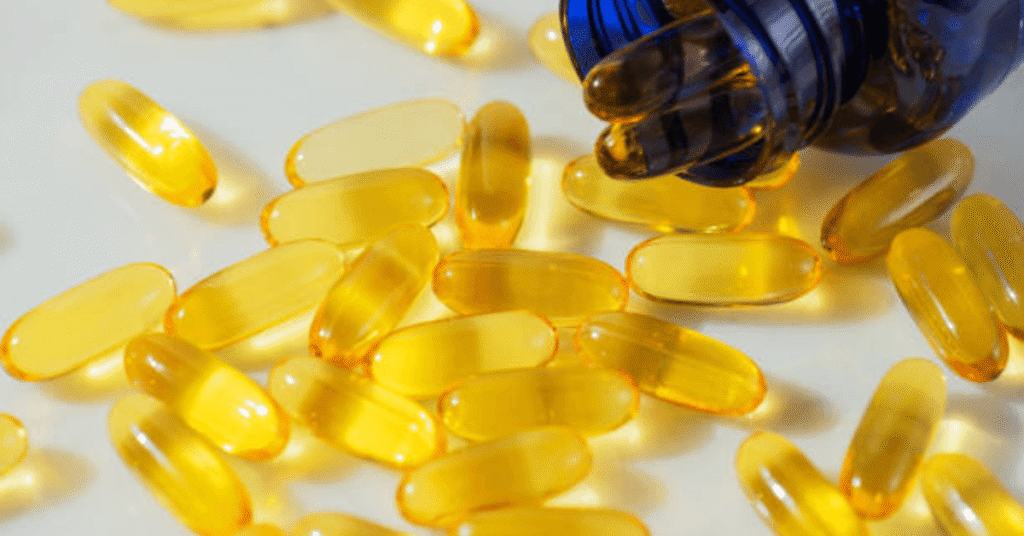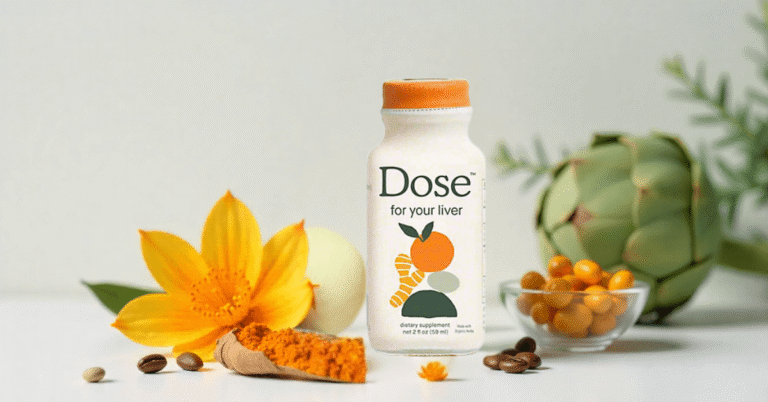Your liver is the body’s ultimate multitasker — it processes nutrients, detoxifies harmful substances, stores vitamins, and regulates metabolism. But modern life can take a toll: poor diet, fatty liver disease (NAFLD), alcohol, certain medications like acetaminophen or statins, and rapid weight loss can all strain liver function.
If you’re searching for safe, effective supplement dosages to protect and support your liver, this guide brings together science-backed dosage ranges for both conventional and herbal options. Whether you’re a health-conscious adult, fitness enthusiast, clinician, or someone navigating liver-impacting medications, you’ll find practical dosage answers here.

Why Dosage Matters for Liver Health
When it comes to liver supplements, more is not always better. The right dose can protect your liver, while the wrong one can cause harm or waste your money.
- Too low → No therapeutic benefit
- Too high → Potential toxicity or drug interactions
- Just right → Optimal support without risk
That’s why this guide emphasizes evidence-based doses, not marketing claims.
Quick Reference: Common Liver Health Supplements & Studied Dosages
| Supplement / Nutrient | Studied Dose Range | Notes & Best Uses |
|---|---|---|
| Milk Thistle (Silymarin) | 200–400 mg/day (standardized to 70–80% silymarin) | Supports antioxidant defense, especially for NAFLD & medication-induced stress |
| Silybin Phytosome | 160–480 mg/day | Enhanced absorption form of milk thistle |
| N-Acetylcysteine (NAC) | 600–1,800 mg/day | Restores glutathione, useful for oxidative stress & elevated ALT/AST |
| SAMe (S-adenosylmethionine) | 800–1,200 mg/day | Supports detox & methylation; may help in cholestasis |
| Turmeric/Curcumin | 500–1,000 mg/day (95% curcuminoids with piperine) | Anti-inflammatory; helpful in fatty liver & metabolic syndrome |
| Vitamin E (d-alpha-tocopherol) | 800 IU/day for NAFLD (AASLD guideline) | Avoid in smokers & those with heart risk without medical advice |
| Omega-3 EPA/DHA | 2–4 g/day combined | Improves triglycerides & liver fat in NAFLD |
| Choline | 550 mg/day (men), 425 mg/day (women) | Deficiency linked to fatty liver |
| TUDCA/UDCA | 10–15 mg/kg/day | Bile acid support; prescription for some conditions |
| Artichoke Extract | 320–640 mg/day | May aid bile flow & digestion |
| Dandelion Root | 1–3 g/day dried root or 2–8 mL tincture | Traditional digestive/liver tonic |
| Phosphatidylcholine | 1,000–3,000 mg/day | Supports cell membrane repair |
| Taurine | 500–2,000 mg/day | Antioxidant; helps bile flow |
| Green Tea Extract (EGCG) | ≤300 mg EGCG/day | Higher doses risk liver injury; safer via brewed tea |
| Coffee | 2–3 cups/day | Linked to reduced risk of fibrosis & NAFLD |
| Liver Detox Pills (generic) | Follow label; avoid megadosing | Often blends of herbs; quality varies |
| Ayurvedic Liver Tonic Syrup (e.g., Liv 52) | Adults: 2–3 teaspoons (10–15 mL) twice daily | Popular in India; mild hepatoprotective effects |
| Acetaminophen Safe Limit | ≤3,000 mg/day (healthy adults) | Spread doses, avoid alcohol |
| Alcohol Safe Limit | ≤14 units/week (men & women) | Space intake across the week |
Before you dose: 5 things that move liver numbers more than pills
- Lose 7–10% body weight if overweight. This has the strongest evidence for normalizing ALT/AST and reversing NAFLD/NASH features.
- Alcohol safe limits liver: none is best for NAFLD. If you drink, keep it light (women ≤1 drink/day, men ≤2; 1 drink = 14 g alcohol). Avoid completely with NASH/advanced fibrosis.
- Meds and toxins: review acetaminophen, supplements, and alcohol together—many “little” exposures add up.
- Metabolic check: triglycerides, A1c, blood pressure, sleep apnea. Fixing these helps the liver.
- Baseline labs: ALT, AST, GGT, bilirubin, ALP, lipids, A1c; consider fibrosis scores (FIB‑4, NAFLD fibrosis score). Recheck 8–12 weeks after a plan change.

How to Choose the Right Dose for Your Needs
- Identify your goal
- Fatty liver? Focus on vitamin E, omega-3, choline, curcumin.
- Elevated ALT/AST? Consider NAC, milk thistle, SAMe.
- On statins? Check for milk thistle–statin interactions.
- Ayurvedic preference? Opt for standardized liver tonic syrup dosages.
- Check quality & standardization
Look for third-party tested supplements with clear mg/IU labeling. - Factor in your health profile
Age, weight, and existing medical conditions matter for dosage safety.
Timing: Morning vs Night for Liver Supplements
- Morning: NAC, coffee, green tea extract — to support daily antioxidant needs.
- With Meals: Fat-soluble supplements (vitamin E, curcumin, phosphatidylcholine, omega-3).
- Night: Some prefer SAMe earlier in the day to avoid insomnia; liver tonic syrups can be taken with dinner.
Practical Dosage Safety Tips
- Start low and increase gradually to the studied range.
- Avoid combining multiple high-dose supplements with similar effects.
- Monitor liver enzymes (ALT, AST) every 3–6 months if taking long-term.
- For NAFLD, lifestyle changes (weight loss, exercise) multiply supplement benefits.
Commonly Asked Questions Inside the Guide
How much milk thistle per day for liver support?
Most studies use 200–400 mg/day of standardized extract. Silybin phytosome offers higher absorption at lower doses.
What’s the best evidence-based dose for fatty liver supplements?
For NAFLD, vitamin E (800 IU/day) and omega-3 (2–4 g/day) have the strongest human trial support.
Do I need to cycle liver detox supplements?
Herbal detox products are best used 8–12 weeks at a time, then paused, unless clinically directed.
Liver health dosage guide by age and weight?
Most adult doses are based on 60–90 kg body weight; for lighter individuals, aim for the lower end of ranges.
How long should I take liver health supplements?
For chronic conditions like NAFLD, 3–6 months minimum with regular re-evaluation.
Final Thoughts
Supporting your liver isn’t about taking the most supplements — it’s about taking the right dose, in the right form, for the right reason. Whether you’re managing fatty liver, protecting against medication-related stress, or simply aiming for long-term wellness, sticking to evidence-based dosage ranges ensures both safety and effectiveness.
Remember, supplements work best alongside healthy lifestyle habits — balanced nutrition, regular exercise, and moderation in alcohol and processed foods. Always choose high-quality, standardized products, monitor your liver function if supplementing long-term, and consult a healthcare professional before starting any new regimen, especially if you take prescription medication.
FAQs(Frequently Asked Questions)
A: Add one supplement at a time for 2–3 weeks at the low end of the dose range, monitor how you feel, then add the next. Recheck labs in 8–12 weeks.
A: Usually yes. Clinically significant interactions are uncommon, but discuss with your prescriber, especially if you’re on multiple meds.
A: Only if you’re a non‑diabetic adult with biopsy‑proven NASH and your clinician agrees. It’s not recommended for diabetic NAFLD or cirrhosis.
A: UDCA is prescription and used for cholestatic diseases. TUDCA is OTC with limited NAFLD evidence; consider only with clinician guidance.
A: Brewed green tea is fine. For extracts, keep EGCG ≤300 mg/day with meals and avoid high‑dose products.
A: Stop non‑essential supplements/alcohol and contact your clinician promptly. Don’t self‑treat with high doses
A: No. Focus on weight loss if needed, coffee, omega‑3s, sleep, and low alcohol. Use targeted, evidence‑based liver supplements instead of large proprietary blends.

